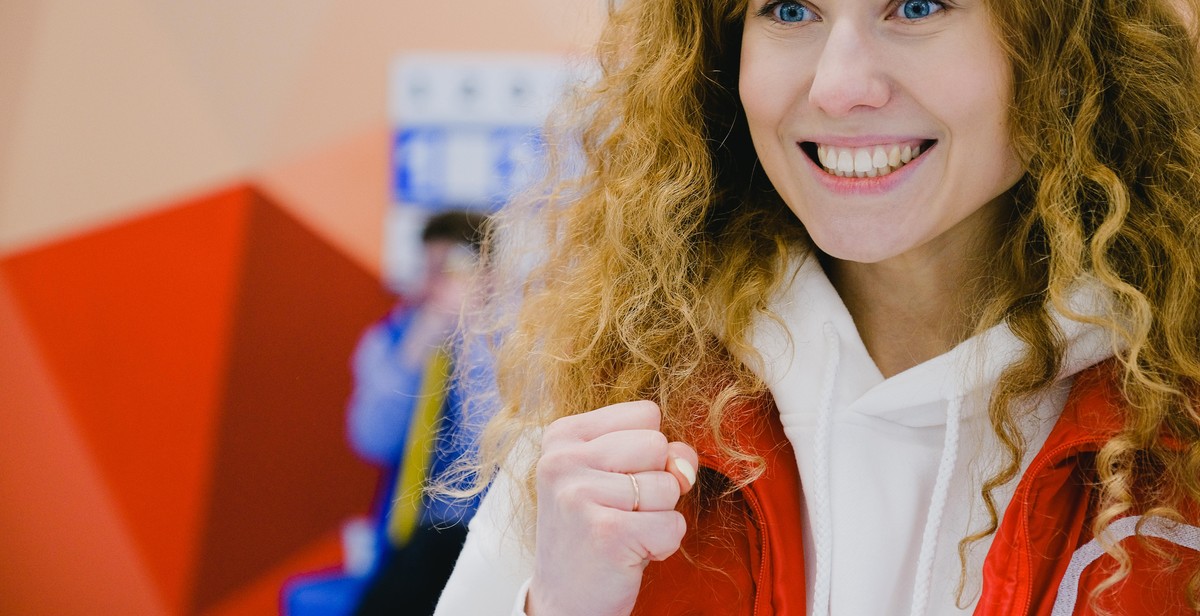Can Opposites Attract? A Love Guru’s Perspective
Defining Opposites
Opposites are often described as two things that are completely different from each other. In the context of relationships, it can refer to differences in personality, interests, values, and beliefs. Some believe that these differences can create a strong attraction between two people, while others argue that too many differences can lead to conflict and ultimately, the demise of the relationship.
The Question of Attraction
The question of whether or not opposites can attract has been a topic of debate for years. Some studies suggest that individuals are more likely to be attracted to those who are similar to themselves, while others suggest that differences can be a powerful source of attraction. As a love and relationships psychology guru, I believe that the answer is not a simple yes or no.
Attraction is a complex phenomenon that can be influenced by a variety of factors, including physical appearance, personality traits, and shared experiences. While similarities can create a sense of comfort and familiarity, differences can bring excitement and novelty to a relationship.

The Science of Attraction
Attraction is a complex and multifaceted phenomenon that has been studied extensively by psychologists and scientists. While there is no one-size-fits-all answer to the question of whether opposites attract, research has shown that both similarities and differences play a crucial role in the attraction process.
The Role of Similarities
Many studies have found that people tend to be attracted to those who share similar values, beliefs, interests, and personality traits. This phenomenon, known as the similarity-attraction effect, suggests that we are drawn to people who we perceive as being like ourselves.
One reason for this is that people who share similar characteristics tend to have more positive interactions and fewer conflicts. They are also more likely to share common goals and experiences, which can create a sense of connection and intimacy.
For example, if you are a vegan who enjoys hiking and practicing yoga, you may be more likely to be attracted to someone who shares these interests and values. This shared bond can create a strong foundation for a relationship.
The Importance of Differences
While similarities can be important in attraction, differences can also play a crucial role. Research has found that people are often attracted to those who possess qualities that they lack themselves.
This phenomenon, known as the complementarity principle, suggests that we are drawn to people who can provide us with qualities or skills that we lack. For example, if you are introverted and shy, you may be attracted to someone who is outgoing and confident, as they can help you to break out of your shell and experience new things.
Additionally, differences can provide opportunities for growth and learning within a relationship. When two people come from different backgrounds or have different perspectives, they can challenge and inspire each other in positive ways.
It is important to note, however, that differences can also lead to conflicts and misunderstandings. It is crucial for couples to communicate openly and respectfully about their differences in order to build a strong and healthy relationship.
Conclusion
In conclusion, both similarities and differences play important roles in the attraction process. While similarities can create a sense of connection and intimacy, differences can provide opportunities for growth and learning. Ultimately, the key to a successful relationship is finding a balance between these two factors and communicating openly and respectfully with your partner.

The Psychology of Attraction
Attraction is a complex phenomenon that is influenced by a variety of factors. As a love and relationships psychology guru, I have studied the psychology of attraction extensively and have found that two factors play a significant role in determining who we are attracted to: the power of familiarity and the draw of novelty.
The Power of Familiarity
The power of familiarity refers to our tendency to be attracted to people who are similar to us. This similarity can be in terms of personality traits, values, beliefs, and even physical appearance. Research has shown that we are more likely to be attracted to someone who shares our interests and values, as well as someone who looks like us.
One reason for this is that we feel more comfortable and secure around people who are similar to us. We are more likely to trust and feel connected to people who share our interests and values. In addition, when we see someone who looks like us, we tend to perceive them as more attractive because they are more familiar to us.
The Draw of Novelty
While the power of familiarity is a strong force in determining attraction, the draw of novelty is also a significant factor. We are naturally drawn to people who are different from us, whether it be in terms of personality, interests, or physical appearance.
One reason for this is that novelty stimulates our brains and creates excitement and intrigue. When we meet someone who is different from us, we are more likely to pay attention to them and want to get to know them better. In addition, being with someone who is different from us can be a learning experience, as we are exposed to new ideas and perspectives.
However, it is important to note that while novelty can be exciting, it can also be challenging. Being with someone who is different from us can lead to conflicts and misunderstandings, as we navigate our differences.
Conclusion
In conclusion, attraction is a complex phenomenon that is influenced by a variety of factors. The power of familiarity and the draw of novelty are two significant factors that play a role in determining who we are attracted to. While similarity can create a sense of comfort and security, novelty can create excitement and intrigue. Ultimately, the key to a successful relationship is finding the right balance between familiarity and novelty.

The Benefits and Challenges of Opposites Attracting
Opposites attract is a common phrase used in love and relationships. It refers to the idea that individuals with different personalities, interests, and values can be attracted to each other and form a successful relationship. While there are benefits to this approach, there are also some challenges that couples may face.
Benefits of Opposites Attracting
- Learning from each other: When you are with someone who has different strengths and weaknesses, you can learn from each other and grow as individuals. For example, if one person is introverted and the other is extroverted, the introverted partner can learn to be more outgoing, while the extroverted partner can learn to appreciate quiet time.
- Spicing up your life: Being with someone who has different interests and hobbies can be exciting and can introduce you to new experiences. For example, if one partner loves hiking and the other loves art, they can take turns introducing each other to their favorite activities.
- Complementing each other: Opposites can complement each other in a relationship. For example, if one partner is highly organized and the other is more laid back, they can balance each other out and create a harmonious household.
- Challenging each other: Being with someone who has different viewpoints can challenge you to think differently and broaden your horizons. This can lead to personal growth and a deeper understanding of yourself and others.
Challenges of Opposites Attracting
- Communication: Couples who are opposites may struggle with communication, as they may have different communication styles and find it difficult to understand each other.
- Conflicting values: Couples with different values may find it challenging to reconcile their differences and compromise on important issues.
- Clashing personalities: Couples with different personalities may struggle to understand each other’s behaviors and reactions, which can lead to misunderstandings and conflicts.
- Power struggles: In some cases, one partner may try to dominate the other, leading to power struggles and a lack of equality in the relationship.
| Benefits | Challenges |
|---|---|
| Learning from each other | Communication |
| Spicing up your life | Conflicting values |
| Complementing each other | Clashing personalities |
| Challenging each other | Power struggles |
While there are challenges to being with someone who is your opposite, there are also many benefits. It is important to recognize and appreciate the differences in your partner and work together to overcome any challenges that arise. With open communication and a willingness to compromise, couples who are opposites can create a strong and fulfilling relationship.

The Final Verdict
After analyzing the various factors that contribute to attraction and compatibility, it can be concluded that opposites can attract, but it ultimately depends on the individuals involved and the extent of their differences.
While some differences can bring excitement and novelty to a relationship, others can create conflicts and misunderstandings. Therefore, it’s important to assess the nature of the differences and whether they can complement or hinder the relationship.
It’s also essential to consider other factors such as shared values, goals, and communication skills. These elements can play a significant role in determining the success of a relationship, regardless of whether the partners are similar or different.
Ultimately, the decision to pursue a relationship with someone who is different from you should be based on a thorough evaluation of the compatibility and potential challenges. With the right mindset, communication, and effort, any relationship can thrive, whether the partners are similar or opposite.
Final Thoughts
As a love guru, I believe that love is a complex and multifaceted phenomenon that cannot be reduced to a simple formula or rule. Each person and relationship is unique, and what works for one may not work for another.
Therefore, the key to finding and maintaining a fulfilling relationship is to be open-minded, self-aware, and willing to learn and grow with your partner. Whether you are attracted to someone who is similar or opposite to you, the most important thing is to respect and appreciate their individuality and work together towards a shared vision for your future.
